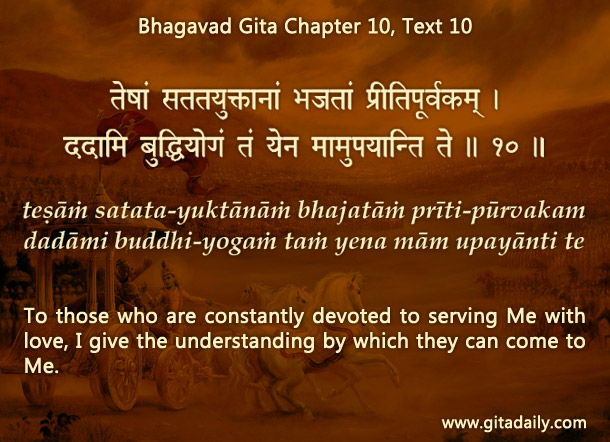Different people approach the Bhagavad-gita differently, seeing it, for example, as a historical, cultural or poetic book. Though the Gita has all these aspects, they are peripheral to its central purpose: to reveal divinity’s will to humanity.
This purpose is evident from the Gita’s context. Its original student Arjuna was initially bewildered about what to do, but after hearing the Gita, his way became clear and he resolved to carry out Krishna’s will.
Studying the Gita with this purpose means to see it as the word of our omniscient, benevolent guide who wants to show us our way in this world. If we have the inclination and the capacity to study the Gita’s historical, cultural, poetic aspects, we certainly should. But even if we don’t – and most certainly if we do – we need to remember that our main purpose is getting to know Krishna’s will for us, just as a patient’s main purpose in hearing the doctor’s words is learning how to take the prescription.
The foremost benefit of seeking Krishna’s will is that we stay conscious of him. And that – being conscious of him – is his fundamental guideline, as is stressed consistently throughout the Gita. Moreover, seeking his will for us makes our Gita study self-transformational, for we see where we fall short of his instructions and what we need to do to improve ourselves.
Most importantly, seeking Krishna’s will infuses into our study and by extension our life a sense of personal reciprocation with him. We see all our activities as opportunities to love and serve him. The Gita (10.10) assures us that when we serve him with a devotional disposition, he guides us from within so that, even amidst perplexities, we can step-by-step act according to his will and ultimately attain him.

Explanation of article:
https://www.youtube.com/watch?v=zJy3SMibSb8

Leave A Comment